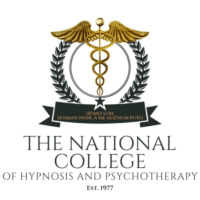Some clients present in therapy wishing to resolve recent or long-standing trauma.
However, many clients present wishing to address patterns such as anxiety, depression, self-harm, addictions, jealousy and so on; all of which can have their roots in trauma that is often, to a greater or lesser extent, unrecognised by the client.
Hence, a vital part of any contemporary therapist’s training (both conceptual and practical) is learning to work safely, effectively and confidently with both reported trauma and issues that may be the sequelae of trauma.
This course is designed to meet those learning outcomes and equip you with the necessary skills to work with trauma presentations.
How You Will Learn…
The training comprises seven modules (the equivalent of 36 hours of training/CPD) delivered via three platforms:
- Three Self-directed online elements;
- One Live online seminar;
- Five days of experiential training (demonstrations and practicums), which will be delivered face-to-face.
Completion of the online material is a prerequisite for attendance at the face-to-face days.
The training is designed to equip you with a thorough grounding in contemporary theories of trauma and safe trauma treatment, along with practical skills in several powerful approaches to desensitising and processing trauma memories.
Module 1 - What is Trauma?
This is a self-directed online module comprising:
- Definitions of trauma;
- Exploring the similarities and differences between acute, chronic, complex and developmental trauma.
Module 2 - The Three Phase Model of Trauma Treatment
This is a self-directed online module comprising:
- An introduction to the three-phase model
- Phase 1: Safety and Stabilisation;
- Phase 2: Trauma Processing and Memory Reconsolidation;
- Phase 3: Integration and Post-Traumatic Growth.
- Phase 1 : Safety and Stabilisation in depth:
- The therapeutic alliance;
- The window of affect tolerance;
- The autonomic nervous system and Polyvagal Theory;
- Ego strength and the ability to self-soothe.
Module 3 - Trauma Informed History Taking
This is a self-directed online module comprising:
- Trauma-informed history taking
- The strengths and weaknesses of 3 approaches:
- Detailed;
- Complaint and solution-focused;
- Client-responsive.
- The strengths and weaknesses of 3 approaches:
Module 4 - Review
This is a live online seminar (via Zoom) comprising:
- Practicums;
- Questions and answers.
Module 5 - Phase 1 and 2 Techniques
This is a two-day live experiential workshop comprising:
- Phase 1 techniques:
- Top-down and bottom-up techniques;
- Demonstration and practicums;
- Working with dissociative and suicidal states.
- Phase 2 techniques (part A):
- The V-K Double-Dissociation technique (‘Rewind’);
- The Flash Technique;
- Progressive Counting.
Module 6 - Phase 2 and 3 Techniques
This is a two-day experiential workshop comprising:
- Phase 2 techniques (part B):
- Eye Movement Reconsolidation (EMR). This approach is based on the Eye Movement Integration model (developed by Connirae and Steve Andreas and extended by Danie Beaulieu) with novel elements developed by David Corr;
- Demonstration and practicums;
- Adjunctive processes:
- Memory Recoding;
- Dream diary;
- Journaling;
- Letter writing.
- Phase 3: integration and post-traumatic growth;
- Strategies and challenges.
Module 7 - Review
This is a live-in-person day comprising:
- A review of modules 1 – 6;
- Supervision and troubleshooting;
- Next steps.
The Fine Details
Mode of Study
-
Blended learning;
-
Self-study modules;
-
Face-to-face tuition;
-
Practical demonstration and exercises.
Hours of Study
-
36 hours over seven modules.
Assessment
A Certificate in Trauma Therapy from the National College of Hypnosis and Psychotherapy requires full participation in all modules of the programme and a case report demonstrating utilisation of:
-
An appropriate phase-oriented approach;
-
At least one of the taught desensitisation/reconsolidation approaches;
-
An appropriate post-traumatic growth strategy.
Cost
-
£792 (£720 for NCHP alumni) – payment plans are available.
Entry Requirements
-
This course is for practising hypnotherapists and hypno-psychotherapists;
-
Trainees who have completed the Stage 2 training at NCHP.
Course Dates
London:
-
Monday 18th May – Self-study modules launched
-
Saturday 30th May – Module 4 online
-
6th and 7th June – Module 5 in person
-
27th and 28th June – Module 6 in person
-
Saturday 25th July – Module 7 in person
Venues
-
The Leonardo Royal St. Paul’s Hotel, 10 Godliman Street, London, EC4V 5AJ, or;
-
Leonardo Hotel 56 Great Bridgewater Street, Manchester, M1 5LE.
What Next?
-
Upon completion and certification of specialist training, you will be equipped with practical skills to be able to use immediately in your practice.
Book This Course Below
Your Tutor – David Corr
David Corr will lead this course. David is a UKCP-registered and accredited psychotherapist and clinical supervisor who has previously taught for NCHP on Stages 2 and 3.
David has over 30 years’ experience as a hypnotherapist and hypno-psychotherapist and has extensive training in several models of working with trauma.
